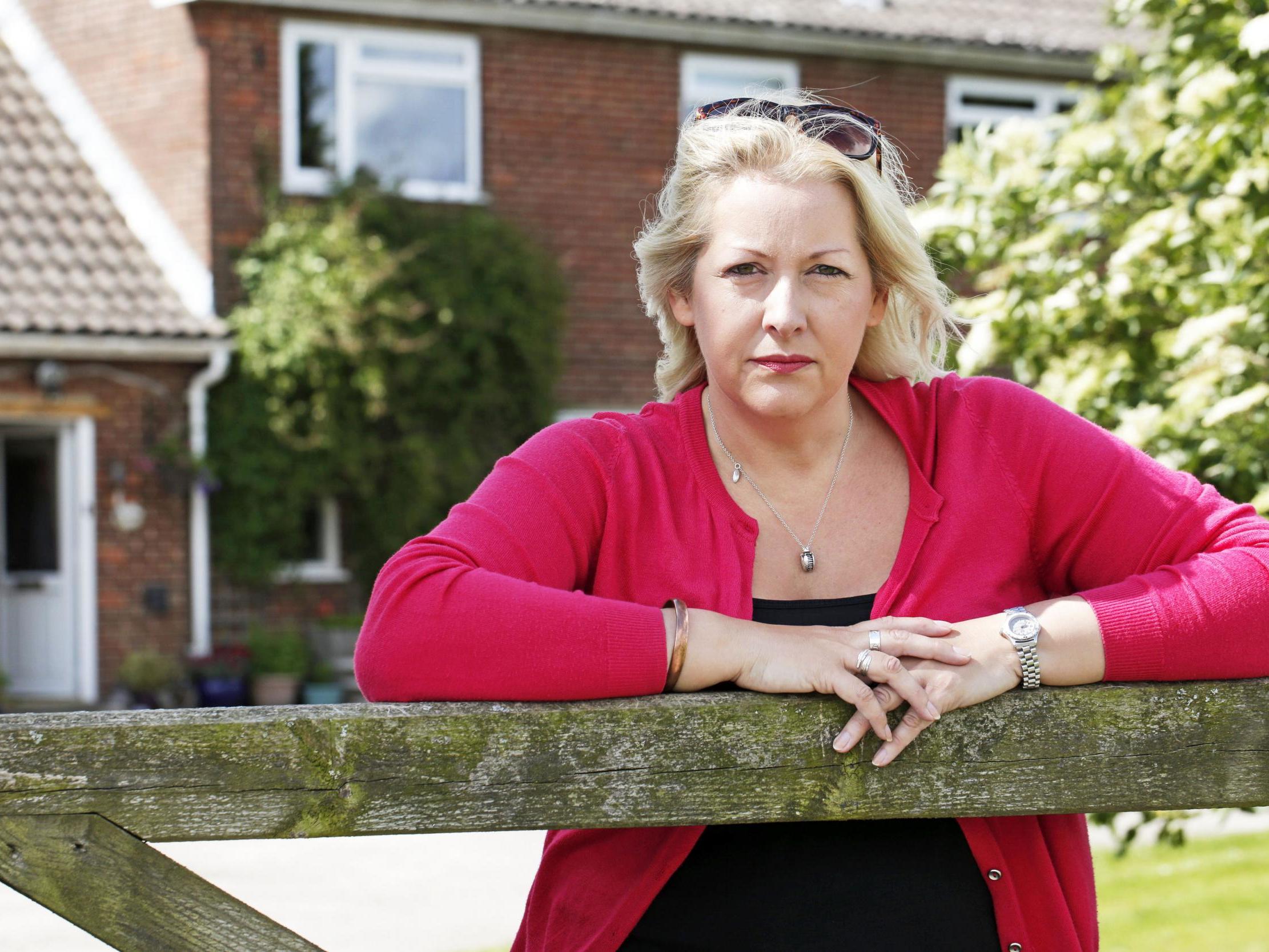Cumberlege inquiry: ‘It felt like they washed their hands of me,’ mother who had mesh surgery says
Royal College of Surgeons urges ministers to pass legislation quickly

Your support helps us to tell the story
From reproductive rights to climate change to Big Tech, The Independent is on the ground when the story is developing. Whether it's investigating the financials of Elon Musk's pro-Trump PAC or producing our latest documentary, 'The A Word', which shines a light on the American women fighting for reproductive rights, we know how important it is to parse out the facts from the messaging.
At such a critical moment in US history, we need reporters on the ground. Your donation allows us to keep sending journalists to speak to both sides of the story.
The Independent is trusted by Americans across the entire political spectrum. And unlike many other quality news outlets, we choose not to lock Americans out of our reporting and analysis with paywalls. We believe quality journalism should be available to everyone, paid for by those who can afford it.
Your support makes all the difference.Mother-of-three Bonita Barrett, who lives near York, had mesh surgery in 2015 as an “add on” when she was treated for prolapse and has been in constant pain ever since.
The 46-year-old is one of 40 women bringing a legal claim against manufacturers and she was forced to stop work and lost her independence due to the effects of the implant.
“I looked online and saw some articles about mesh complications, however my surgeon assured me they weren’t using mesh so I went ahead with it.”
Weeks later she started to experience pain but she was told there was nothing wrong with her implant.
“It felt like they washed their hands of me, and yet my legs felt as if they were on fire while my buttocks felt like an ice pack. I couldn’t even sit down and to even slightly relieve the pain I needed to lie flat all of the time.”
In 2017, she had surgery to remove the mesh but not all of it could be taken out, as it was inserted into a nerve-rich area, which surgery risked damaging further.
“I was in so much pain that I scarcely visited my dad, who was dying from terminal cancer, as I could barely leave the sofa. He was really keen for me to have the removal and feel some sort of relief. He died a week before my surgery, meaning I came out of hospital and went straight to his funeral in a wheelchair. I am angry and heartbroken that mesh stole the little time I had left with my dad.”
She is one of hundreds of women whose lives have been turned upside down by the effects of surgical mesh implants at the centre of the Cumberlege inquiry.
As well as women with mesh, there are hundreds of disabled adults who were born with deformities or mental disabilities over the past four decades because their mothers were given sodium valproate or the pregnancy test Primodos.
Those affected have been campaigning for decades for justice and answers as to why they were not warned of the risks.
Many of the families welcomed the Cumberlege inquiry report but said it was vital the recommendations were now acted on.
Emma Friedmann, campaign director at the FACSaware group, and whose son Andy is severely disabled and needs constant care as a result of the drug, said she was “absolutely delighted” with the report.
“We must now ensure that those harmed by pharmaceutical products have access to justice to hold those responsible to account.”
Susan Cole, founder of Valproate Victims, said: “It's quite overwhelming to me that 50 years after valproate was first used we have at last been heard.”
Linda Millband, national clinical negligence lead at Thompsons Solicitors, which represents 400 mesh victims, said: “Baroness Cumberlege’s recommendations offer the possibility of real reform, but it must be swift, real and properly resourced, with ‘new’ money not taken from already committed funds.
“Our clients have faced rejection and belittlement, while racked with pain. An apology is long overdue. What those who have suffered for so long deserve is decisive action that leads to real change, starting today.”
Bozena Michalowska, a partner at Leigh Day law firm (which is representing patients treated with sodium valproate), added: “Action is needed now to ensure the recommendations are implemented quickly. The impact on society has been massive and continues to be as children affected by sodium valproate move through the education system and into the community. Those children will need to be looked after and cared for and families need practical guarantees that that will happen.”
The Royal College of Surgeons has backed recommendations by the inquiry to create a new central database for collecting details of patients who have implants during surgery.
Professor Derek Alderson, president of the college, said: “Most people would be astonished to know that when they have an operation and a medical device or implant is used, there is no systematic way of tracking that implant over the following months and years.
“If years later, we become aware of a safety issue or problem with the implant, as happened with pelvic meshes, there may not be a complete record of which patients we need to contact.”
He said the government’s current Medicines and Medical Devices Bill in parliament was the perfect legislative vehicle for enacting the recommendations.
He added: “We are urging government to use a bill now going through parliament to put Baroness Cumberlege’s recommendation for a central database into law. Ministers don’t need to wait any longer.”
Join our commenting forum
Join thought-provoking conversations, follow other Independent readers and see their replies
Comments